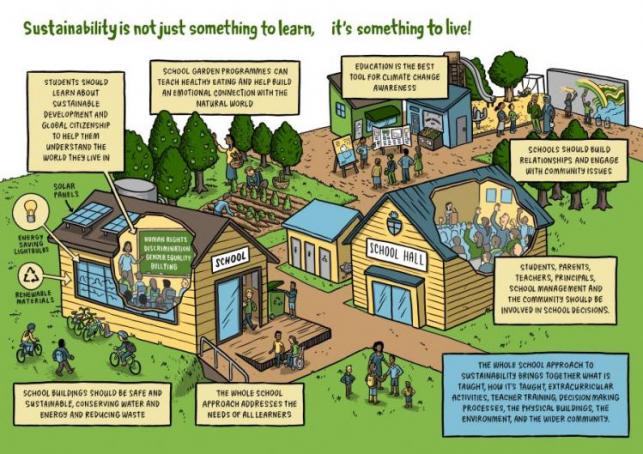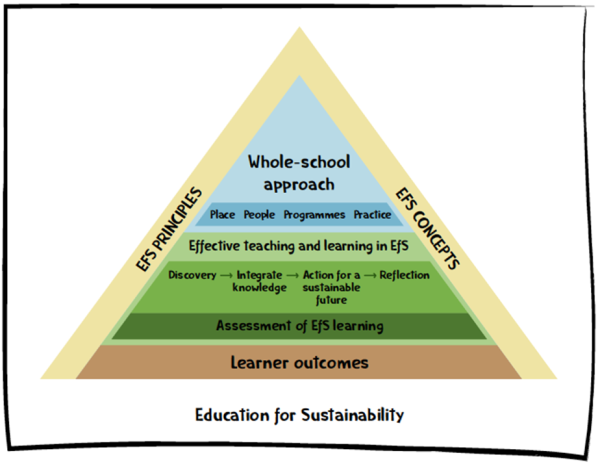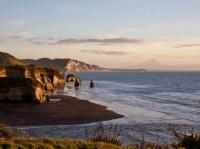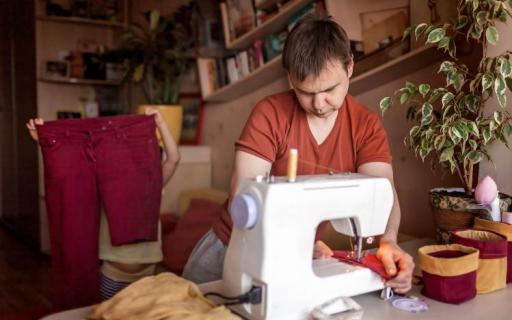Education for Sustainability (EfS) empowers learning communities with the values, knowledge, and skills they need to take meaningful action to ensure a thriving world.
This website provides the rationale for EfS, celebrates learner outcomes, discusses teaching pedagogies, and describes the ways in which EfS can inform a whole-school approach to creating a more sustainable world.
Whole-school approach
A whole-school approach to sustainability enables ākonga, teachers, leaders, and the community to integrate the concepts of Education for Sustainability into the wider school culture. As noted by UNESCO, a whole-school approach to sustainability ensures we “learn what we live and live what we learn”.
 Click to enlarge
Click to enlarge
Whole-school approach poster from UNESCO Global Education Monitoring Project (illustrated by Toby Morris)
If you cannot view or read this diagram, select this link to open a text version.
Ākonga should be able to see that sustainability is part of the school-wide kaupapa, and the principles of Education for Sustainability (EfS) are valued and supported by the entire learning community. Leadership, operations, and the wider school community should be visibly engaged in sustainable practices and support effective teaching and learning within EfS.
If you cannot view or read this diagram, select this link to open a text version.
If an educational setting has not yet embarked on a whole-school approach to sustainability, the four areas of a whole-school approach can still be considered and utilised when planning for effective teaching and learning within EfS.
The four areas that work together to create a sustainable school are place, people, practices, and programmes. (These descriptors have been adapted from A framework for whole-school approaches to education for sustainability, Chris Eames, 2010.)
The land we stand on was here long before us and will remain long after we have gone. Acknowledging the impact our lives have on the landscape, and the landscape on us, is an important part of a whole-school approach to Education for Sustainability. Addressing our collective histories and creating the future we want to live into is a key opportunity when we interact with place within a whole-school approach.
Akōnga at schools with a thriving relationship to place will:
- be aware of the history of the land on which the school and its community sits, acknowledging and referring meaningfully to this history within their learning
- be engaged in formal and informal learning experiences in a range of natural environments
- take care of a variety of natural and social environments to sustain people, ecosystems, and biodiversity
- enjoy a built environment that aligns with natural systems, the environment, community, and learning in EfS
- participate in planning for the regeneration of natural ecosystems and increasing biodiversity where appropriate and possible.
A whole-school approach focuses on people, ensuring that we work collaboratively and reflect our bicultural heritage and the diversity of our community. Effective EfS schools ensure that ākonga are involved in decision making in order to become lifelong learners who are confident, connected, and actively involved.

Photo by Helena Lopes.
Ākonga will know that their school supports people to thrive through Education for Sustainability because they will:
- have learning experiences that reflect the cultural diversity of the school and its community
- engage in active, reciprocal, and mutually beneficial relationships with mana whenua
- acknowledge New Zealand’s bicultural foundations within Te Tiriti o Waitangi
- have relationships for learning with the wider community
- work collaboratively across all groups involved in the school
- be active participants in decision-making processes
- be involved in action for sustainability
- see school leaders articulate and model the importance of EfS at the school.
A whole-school approach to Education for Sustainability ensures that programmes focus on the design and implementation of curricula that develop attitudes and behaviours for a more sustainable future. Through taking action, students discover how to make sustainability a reality in their school and wider community.
Ākonga at schools with effective EfS programmes will:
- know their whole-school plan for EfS
- learn about sustainability in multiple learning areas, because their kaiako and teachers have strong, coherent local curriculum design
- have learning experiences in which they investigate complex issues, integrate knowledge, act for a sustainable future, and reflect on their success
- learn about sustainability within and outside the classroom in a variety of settings
- have opportunities to engage in EfS through their co-curricular activities
- be assessed in ways that recognise their development of action competence in Education for Sustainability.
Within a whole-school approach to EfS, sustainable practices are part of a school’s culture which enables a more resilient community for the future.
Ākonga will know their school has sustainable practices because they will:
- be aware that the school’s budget and purchases are based on a sustainability policy, which they might have helped to design
- are supported to participate in sustainable practices at different levels of the school’s organisation
- manage their resources sustainably, understanding the waste management system used by the school
- see learning about sustainability reflected in their whole school’s practices
- be introduced to sustainability practices in the school when they are new to the school
- take part in monitoring, evaluating, and reflecting on the ways EfS practices at their school can evolve and improve.
Resources
Enviroschools
Through Enviroschools, ākonga connect with and explore the environment, then plan, design and take action in collaboration with their communities. The Enviroschools programme uses a whole-school approach to ensure that the whole school is ‘walking the talk’ on sustainability. To join the programme and access a range of resources, contact your local Regional Coordinator.
Investigating the Relationship between Whole-School Approaches to Education for Sustainability and Student Learning Dr C. Eames (2010)
This document provides a useful framework for understanding and developing a whole-school approach to sustainability. It may be a useful foundation for schools seeking to develop their own whole-school approaches to sustainability. It was produced by a New Zealand research team, including teachers, through a Teaching and Learning Research Initiative project.
Building Climate Ready Schools: Towards Identifying Good Practice in Climate Change Education UNESCO (2018)
Schools who are developing their own whole-school approaches to sustainability may find useful this report from UNESCO on Getting Climate-Ready: A Guide for Schools on Climate Action. It identifies good practices of climate action taking place in selected Canadian schools using a whole-school approach.
Para Kore
Para Kore empowers and supports marae and organisations in Aotearoa New Zealand to work towards zero waste, through the delivery of an innovative education programme within the frameworks of kaupapa and tikanga Māori. Ākonga, teachers, and kaiako can use this to consider how they can change their school’s practices and the challenges they need to overcome on their journey.
Leadership and school-wide climate responses: Research briefing 2
This report shows how school leadership and school-wide approaches can play a key role in effective climate change responses. Teachers, kaiako, and ākonga may find the range of examples useful when they are deciding where they would like to start their journey towards a whole-school approach.
Topics include:
For further research reports and articles, see NZCER’s project page.
Return to top












